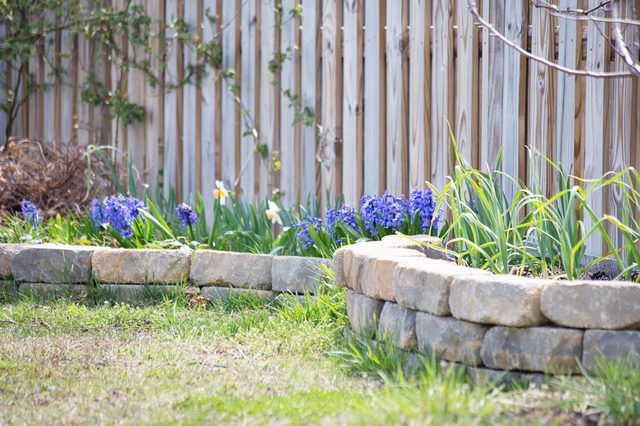Bulbs
Flower Basics
Flower Beds & Specialty Gardens
Flower Garden
Garden Furniture
Garden Gnomes
Garden Seeds
Garden Sheds
Garden Statues
Garden Tools & Supplies
Gardening Basics
Green & Organic
Groundcovers & Vines
Growing Annuals
Growing Basil
Growing Beans
Growing Berries
Growing Blueberries
Growing Cactus
Growing Corn
Growing Cotton
Growing Edibles
Growing Flowers
Growing Garlic
Growing Grapes
Growing Grass
Growing Herbs
Growing Jasmine
Growing Mint
Growing Mushrooms
Orchids
Growing Peanuts
Growing Perennials
Growing Plants
Growing Rosemary
Growing Roses
Growing Strawberries
Growing Sunflowers
Growing Thyme
Growing Tomatoes
Growing Tulips
Growing Vegetables
Herb Basics
Herb Garden
Indoor Growing
Landscaping Basics
Landscaping Patios
Landscaping Plants
Landscaping Shrubs
Landscaping Trees
Landscaping Walks & Pathways
Lawn Basics
Lawn Maintenance
Lawn Mowers
Lawn Ornaments
Lawn Planting
Lawn Tools
Outdoor Growing
Overall Landscape Planning
Pests, Weeds & Problems
Plant Basics
Rock Garden
Rose Garden
Shrubs
Soil
Specialty Gardens
Trees
Vegetable Garden
Yard Maintenance
How to Get Rid of Bugs Without Chemicals
How to Get Rid of Bugs Without Chemicals. Bugs and gardens go together, but some insects are more welcome than others. When damaging bugs invade your plants, chemical treatments aren't the only answer. Many less toxic alternatives help rid your garden of unwanted pests. By combining various bug-busting approaches, you can enjoy a chemical-free...
Bugs and gardens go together, but some insects are more welcome than others. When damaging bugs invade your plants, chemical treatments aren't the only answer. Many less toxic alternatives help rid your garden of unwanted pests. By combining various bug-busting approaches, you can enjoy a chemical-free garden without harming the environment and other organisms.
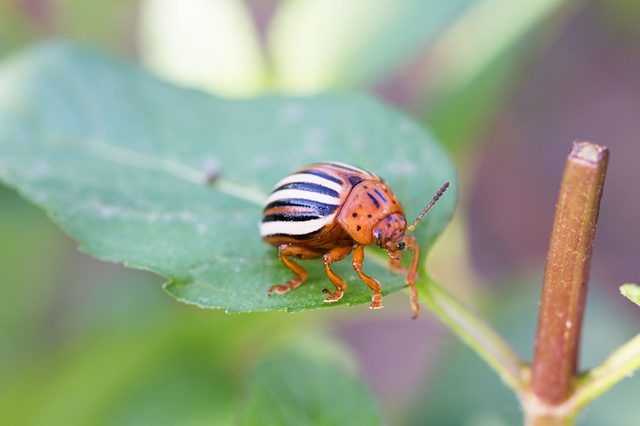
The simplest way to rid plants of unwanted bugs is to tackle the offenders physically. For some insects, handpicking is an effective means of control. Pests such as spittle bugs, which cover themselves in hard-to-penetrate foam, can be controlled through manual removal when intercepted early. For aphids, a blast of water from the hose dislodges the pests and encourages them to move on. Physical barriers such as collars around a plant's base prevent cutworms from coming closer. Nets and row covers can keep harmful bugs away from edible crops. Be prepared to remove the covers when plants flower, so pollinating insects can get to blooms and do their job.
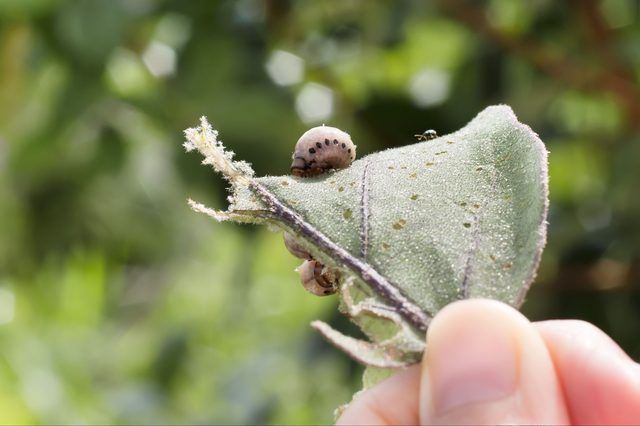
Many insects have natural predators and parasites farther up on the insect kingdom's food chain. Commercially available beneficial insects serve as natural enemies to harmful insect pests and help control them when released in your garden. Small, parasitic wasps exploit aphids as hosts for eggs and larvae, leaving emptied aphid mummies behind. Mature lady beetles gorge themselves on aphids while their larvae feed on aphids and whiteflies. Lacewing larvae prefer mites and other insects. As pests diminish, expect beneficial insects to move on to new homes.
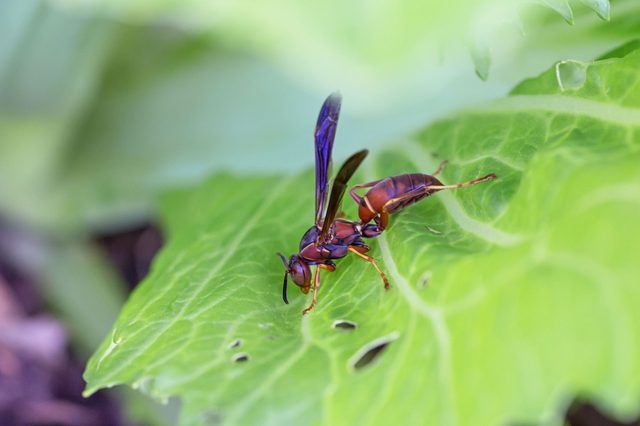
Products whipped up in your kitchen can help free your garden from bugs. Homemade insecticidal soap works by suffocating and dehydrating soft-bodied invaders such as aphids and mealybugs. Use 1 teaspoon dishwashing liquid, 1 teaspoon vegetable oil and 1 cup water, mixed well in a spray bottle. Spray all leaf surfaces, especially underneath; the soap must come in contact with the bugs to work. Rubbing alcohol swabbed on with cotton pads treats against spider mites. Two tablespoons ground, hot red pepper mixed with six drops of dishwashing liquid and 1 gallon water attacks cole-crop pests. Let water draw out capsaicin overnight, then spray weekly. Always wear gloves and safety glasses when mixing and spraying products. Even natural solutions can be toxic or irritating to skin and eyes.
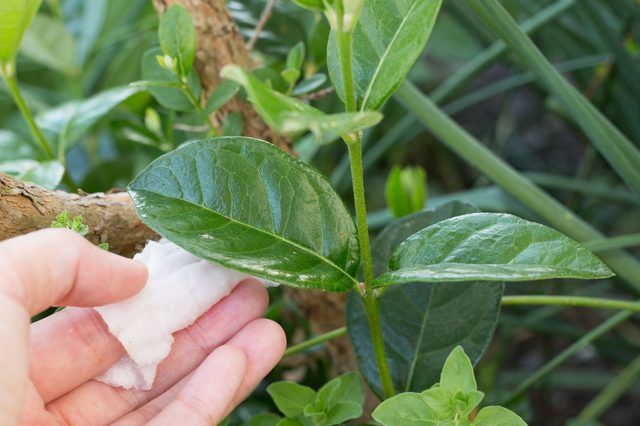
The most effective way to rid your garden of harmful bugs is to avoid them. Stressed plants attract opportunistic pests and suffer more damage than healthy plants. Choose plants suited to your climate and conditions, and give them the right amounts of sun, shade and care. Proper watering ensures roots stay active and absorb necessary nutrients. Appropriate fertilizing prevents weak, vulnerable growth. Rotating vegetable crops and cleaning up leaf debris keep gardens healthy. Inhospitable plants send bugs packing to find easier targets somewhere else.
